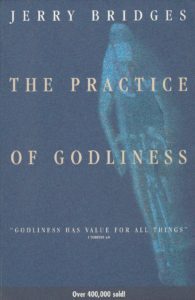Stephen W. Hiemstra's Blog, page 180
August 16, 2019
Managing Change
 By Stephen W. Hiemstra
By Stephen W. Hiemstra
Probably the most difficult aspect of leadership is managing change. Often pain is involved which provides an important clue that the status quo has been or will soon be disrupted. Pain presents a Gethsemane moment (Matt 26:36) when a decision needs to be made—shall I turned into my pain and initiate negative self-talk or turn to God and give it over to him? The answer to the many times this question comes up defines our character both as Christians and as Christian leaders.
Seeking Guidance
As the Apostle James reminds us: “If any of you lacks wisdom, let him ask God, who gives generously to all without reproach, and it will be given him.” (Jas 1:5) A Gethsemane moment poses a need for pain relief, but the need for guidance is almost always a more pressing concern. Guidance is obviously needed to know how to proceed to solve possible problems, but also to know how to respond to the pain. Left to simmer, pain often turns into negative self-talk, depression, and anger.
Anger can be especially destructive. In copying with anger, Lester (2007, 62) presents a 6 step model:
Recognize anger;
Acknowledge anger;
Calming our bodies;
Understanding why we are threatened;
Evaluating the validity of the threat; and
Communicating anger appropriately.
This list sounds suspiciously like how other authors suggest speakers cope with hostile questions—anger is often suppressed and expressed in a devious manner. Lester notes that anger is often camouflaged as procrastination; actions that frustrate, embarrass or causes others pain; nasty humor; nagging; silence; sexual deviance; and passive-aggressive behavior (Lester 2007, 88-89). It is more productive to seek God’s advice—Lord, why have you brought me to this time and this place?
Tension between Stewardship and Theology
The problems facing church leaders today seem endless, but one problem stands out: stewardship. Real wages have been flat for most workers in the United States since the early 1980s with most income gains accruing to the top earning ten percent (Desilver 2018). If one combines wage stagnation with declining church attendance, the stewardship problem becomes obvious. In many churches, every funeral is accompanied with a financial crisis.
While most people are familiar with the biblical concept of the tithe, relatively few people understand where it comes from. Historically each Jewish worship service requires at least ten Jewish men to be present—a minion. Jesus traveled with his twelve disciples which meant that everywhere he stopped to speak was an official Jewish worship service. Well, if a Rabbi had a minion and each of them contributed the title, then the Rabbi would enjoy the average standard of living of his minion. In the American church where the average congregant donates one percent of income, it basically takes a membership of one hundred congregants to support a pastor, which implies that an American minion is one hundred congregants.
The stewardship crisis facing American churches also poses a theological crisis because the pastors must keep their minions happy. If the pastor’s job is to comfort the afflicted and to afflict the comfortable, a balance is obviously easier to maintain with a Jewish minion than an American minion. In other words, because of how churches are financed, the pastor today must be an expert in crowd control in a society focused more on media entertainment than biblical literacy. Maintaining faithful teaching in the midst of this framework is understandably difficult.
Change as Transition
Change seldom happens overnight. This makes it helpful to think of change as a transition with beginning, middle, and ending phases rather than single event. In pastoral care, the typical hospital visit is a transition—something prompted the visit, the patient requires a period of treatment, and, then, what will be different as they leave the hospital? This final question is inherently spiritual, especially when the patient passed through a near-death experience.
The Exodus experience poses the classical biblical transition. It took Moses maybe 40 days to get the people of Israel out of Egypt, but it took him 40 years in the desert to get the Egypt out of the people. Even then, Joshua, not Moses, was the one that led them into the Promised Land (Bridges 2003, 43). Interestingly, it was in the desert where the people of Israel learned to rely on God (Exod 7:16; Card 2005).
Rebooting a Program or Career
Whenever one invests heavily in a project, program, or career, it becomes like human capital, analogous to the purchase a specialized machine, like a harvester for picking only corn (Johnson and Quance 1972). Once this investment is made, it is fixed and cannot be easily changed. When market conditions change, the value of this investment declines and may become worthless. Still, for the manager making the investment, it may be easier pretending markets will come back than owning up to the loss.
Early in my economics career, I invested a lot of time and effort learning Spanish hoping to work in Latin American affairs. By the time I completed my degree, interest in Latin American development had subsided and everyone was taking about West Africa development, where the dominant language in French, not Spanish. Consequently, I found myself studying French, but before long I ended up going into finance where my language skills were pretty much irrelevant. My willingness to learn new things and switch fields paid off handsomely over the years and I retired with a salary about double that of colleagues who had started out with me in international affairs.
Churches are typically much smaller than government agencies, which intensifies the the need to learn new things. In this context, rebooting programs and careers is an ongoing battle. The need to go to the Lord in prayer is important both in knowing what to do and in managing the painful emotions that change can bring.
References
Bridge, William. 2003. Managing Transitions: Making the Most of Change. Cambridge: Da Capo Press.
Card, Michael. 2005. A Sacred Sorrow: Reaching Out to God in the Lost Language of Lament. [Also: Experience Guide]. Colorado Springs: NavPress.
Desilver, Drew. 2018. “For most U.S. workers, real wages have barely budged in decades” Pew Research Center. Accessed: 25 July 2019. Online: (https://www.pewresearch.org/staff/drew-desilver) August 7.
Johnson, Glenn L. and C. Leroy Quance [editors]. 1972. The Overproduction Trap in U.S. Agriculture: A Study of Resource Allocation from World War I to the Late 1960’s. Baltimore: Johns Hopkins University Press.
Lester, Andrew D. 2007. Anger: Discovering Your Spiritual Ally. Louisville: Westminster John Knox Press.
Managing Change
Also See:
Value Of Life
Other ways to engage online:
Author site: http://www.StephenWHiemstra.net, Publisher site: http://www.T2Pneuma.com.
Newsletter: http://bit.ly/HotWeather_2019
The post Managing Change appeared first on T2Pneuma.net.
August 13, 2019
Bridges Practices Godliness
 Jerry Bridges.1996. The Practice of Godliness. Colorado Springs: NavPress.
Jerry Bridges.1996. The Practice of Godliness. Colorado Springs: NavPress.
Review by Stephen W. Hiemstra, Author of Simple Faith and other books available online.
If you are like me, I always confused the words holiness and godliness, thinking that they were synonyms. Apparently, we are not alone. Bridges explains: “This book is a sequel to an earlier book, The Pursuit of Holiness. In Ephesians 4:20-24, Paul urges us to put off our old self and to put on the new self. The Pursuit of Holiness dealt largely with putting off the old self—dealing with sin in our lives. The Practice of Godliness focuses on putting on the new self—growing in Christian character.”(7)
This explanation made perfect sense to me because I read one right after the other.
What is Godliness?
Bridges describes the Bible as “a book on godliness.” (11) He highlights these verses:
“But the fruit of the Spirit is love, joy, peace, patience, kindness, goodness, faithfulness, gentleness, self-control; against such things there is no law.”(Gal 5:22-23 ESV)
Other such lists can be found in Colossians 3:12-16, Ephesians 4:2-3,32, James 3:17, and 2 Peter 1:5-7 (7). I have always associated these lists as practical translations of Exodus 34:6, where God describes his character:
“The LORD passed before him and proclaimed, The LORD, the LORD, a God merciful and gracious, slow to anger, and abounding in steadfast love and faithfulness,”(Exod 34:6)
Being created in the image of God (Gen 1:27), our utmost desire is to emulate God in all we see him doing, which leads us to godliness because of his own self-disclosure of characteristics.
Rejoice Always
A key aspect of godliness in life and in ministry is the gift of joy. Bridges writes:
“But we are not to sit around waiting for our circumstances to make us joyful. We are commended to be joyful always. (1 Thes 5:16)”
Sometimes we need to give ourselves and others permission to be joyful.
Bridges sees four stumbling blocks to joy: (1) sin, (2) misplaced confidence, (3) God’s disciplining, and (4) trials and tribulations (109-112). He advises another four practices in practicing joy: (1) confess and forsake sin, (2) trust in God, (3) take the long view in life, and (4) give thanks in all circumstances (115-117). If we practice joy, he sees two benefits: (1) God is pleased and (2) we will be strengthened physically, emotionally, and spiritually (117-118).
This is interesting advice because I have prayed for strength daily for several years.
Background and Organization
Jerry Bridges (1929 – 2016) studied at the University of Oklahoma, served in the U.S. Navy, and worked on the staff of The Navigators, an evangelistic Christian group headquartered in Colorado Springs, Colorado. He authored numerous books on the Christian life. Bridges writes in eighteen chapters, each centered on a particular passage of scripture. These chapters are preceded by a foreword and preface, and followed by a postscript.
This is almost the exact same format as Bridge’s other book and, as such, NavPress later issued the two books together with a Bible study as a compendium (2001).
Assessment
Like his earlier book, Jerry Bridges’s book, The Practice of Godliness, is destined to be a Christian classic. The wisdom found in this book has informed my walk with the Lord for almost twenty years. It is easy to read and well worth the effort.
References
Bridges, Jerry. 1996. The Pursuit of Holiness. Colorado Springs: NavPress. (Review)
Footnotes
https://en.wikipedia.org/wiki/Jerry_B.... https://en.wikipedia.org/wiki/The_Nav....
Bridges Practices Godliness
Also See:
Top 10 Book Reviews Over the Past 12 Months
Other ways to engage online:
Author site: http://www.StephenWHiemstra.net, Publisher site: http://www.T2Pneuma.com.
Newsletter: http://bit.ly/HotWeather_2019
The post Bridges Practices Godliness appeared first on T2Pneuma.net.
Oración para Protección
 Padre todopoderoso,
Padre todopoderoso,
Toda gloria y honra son tuyos
Porque tu nos amas y protéjanos
En tiempos de mucha incertidumbre como hoy día.
Perdónanos por nuestros pecados,
especialmente de la ausencia de nuestras familias.
Te agradecimos para tu misericordia y
la salud que hace posible a trabajar aquí
fuera de nuestros hogares y familias,
pero ni fuera de tu protección y gracia.
En el poder de tu Espíritu Santo,
sea muy cerca de nosotros este día y cada día.
Bendícenos y este pueblo de fe.
En el precioso nombre de Jesucristo, Amen.
Oración para Protección
The post Oración para Protección appeared first on T2Pneuma.net.
August 12, 2019
Default Settings: Monday Monologues, August 12, 2019 (podcast)
 Stephen W Hiemstra, 2018
Stephen W Hiemstra, 2018By Stephen W. Hiemstra
This morning I will share a prayer and reflect on default settings.
After listening, please click here to take a brief listener survey (10 questions).
To listen, click on the link below:
https://t2pneuma.net/wp-content/uploads/2019/07/Default_Settings_Monday_Monologes_201908012.mp3
Hear the words; Walk the steps; Experience the joy!
Default Settings: Monday Monologues, August 12, 2019 (podcast)
Also see:
Monday Monologue On March 26, 2018
Other ways to engage online:
Author site: http://www.StephenWHiemstra.net, Publisher site: http://www.T2Pneuma.com.
Newsletter: http://bit.ly/HotWeather_2019
The post Default Settings: Monday Monologues, August 12, 2019 (podcast) appeared first on T2Pneuma.net.
August 11, 2019
Prayer for Strength and Protection
 Photo by Stephen W. Hiemstra
Photo by Stephen W. HiemstraBy Stephen W. Hiemstra
Almighty and Omniscient Father,
All glory and honor are yours for you protect me from hidden dangers and from temptations that would destroy me.
Forgive me for harboring so many weaknesses and yielding so quickly to every snare and pit that Satan lays in my path–the hidden pride, the sin I ignore, and my impatience with life.
Thank you for your hedge of protection that guards my heart and mind, keeping me focused on you, and sparing me the pain and death of those around me.
In the power of your Holy Spirit, grant me the strength and desire to honor your healthy boundaries and to live within your will for my life. Remind me daily of my baptism and to keep my heart pure, ever prepared for communion with you and the church.
In Jesus’ precious name, Amen.
Prayer for Strength and Protection
Also see:
Prayer for Healthy Limits
Other ways to engage online:
Author site: http://www.StephenWHiemstra.net, Publisher site: http://www.T2Pneuma.com.
Newsletter: http://bit.ly/HotWeather_2019
The post Prayer for Strength and Protection appeared first on T2Pneuma.net.
August 9, 2019
Beyond Default Settings
 By Stephen W. Hiemstra
By Stephen W. Hiemstra
An important struggle for Christians in this postmodern society is striking a balance between structure and change. Structure can mean worshipping with our preferred music, theology, or ethnic group while change can mean mixing any of these things up. This tension between structure and change exists in all aspects of life today—family, community, church, and work—which exhausts us constantly. Finding peace in the midst of this chaos is a theme in the postmodern church.
Reverting to Default Settings
In the midst of chaos and the absence of reflection, many people and churches naturally revert to their default settings, which reflect a happy period in their past. In the political realm, we see ethnically-based groups forming that resist compromise and shamelessly promote their own narrow interests at the expense of others. In the church, we see spirited food-fights—worship wars—over small changes in musical genre. These default settings are deeply ingrained aspects of our identity that, as Christians, are supposed to be in Christ, not other things. At least, three explanations can be offered for these reversions:
In a period of fundamental change in life in society, we may look for structure in our Christian lives that previously may have vested elsewhere.
If our faith is not centered on Christ but on other things, then the superficiality of our faith has been unmasked for all to see.
It is amazing how often default settings come into play when people act out of fear or anger.
In all likelihood, all of these explanations work together to intensify the emotions driving these reversions.
The Role of Presuppositions
Default settings often operate at a subconscious or presuppositional level. In its simplest form, a presupposition is an implicit, unstated assumption about how things work.
Think about the colors, white and black. We normally associate white with day—safe time when you can see everything— and black with night—a fearful time when crooks and evil spirits are at work. White is often thought to good, as in the good cowboys wear white hats while the bad ones wear black hats. Old movies may have even reinforced these cowboy stereotypes, which may seem harmless until we start talking about race relations.
Because presuppositions operate subconsciously, they can affect our behavior without us even being conscious of it. In my own case, I volunteer working in Hispanic ministry and often practice my Spanish by listening to Spanish Christian music. One summer day several years ago when I was out driving I caught myself becoming anxious having the windows down as I played my music sitting at a traffic light. Why was I anxious? Subconsciously I was afraid that complete strangers would assume that I was Hispanic. Ouch! I instantly became ashamed of myself.
The way to overcome such presuppositions is to examine our own behaviors and ask: why am I doing this? Presuppositions stop influencing our behavior when we take the time to reflect on why we impulsively do things.
Emotional Clues
One area where reflection is likely to be fruitful in understanding our own presuppositions arises when we get emotional. What makes you mad? What touches your heart inducing sadness?
Lester (2007, 14) observes that we get angry when we feel threatened. While we could be angry because of a physical threat, most often we get angry because of psychological threats: threats to our values, our beliefs about right and wrong, our expectations about the way good people should act. When threatened: The intensity of our response depends on the amount of personal investment we have in the values, beliefs, and means that are being threatened. Following this “threat model” of anger, our first responsibility when we get angry is to recognize that we feel threatened and to identify the nature of the threat (Lester 2007, 28-29). Anger always has an object.
What can be mystifying is when you find yourself intensely angry or hurt without knowing exactly why, a phenomena known as an emotional hijacking. On reflection, an emotional hijacking may reveal a repressed grief or presupposition that offers rare insight into your emotional history.
During my internship at Providence Hospital, the head nurse in the emergency department asked me to speak with a young woman who miscarried that morning. I ministered to her for about ten minutes before she began ministering to me, as I recalled a un-grieved miscarriage that my wife and I experienced twenty years prior. I broke off my meeting with the woman and spent the next half hour in tears in the chapel.
What Can Christian Leaders Do?
The more we center our lives on Christ, the less likely we are to revert impulsively to default settings. With Christ as our number one priority and consulting God in prayer when questions arise, we are more likely to reflect on our actions and less likely to act impulsively.
Centering our lives on Christ does not mean suddenly giving up our favorite music, revising our theology, or hanging out with people that make us uncomfortable. What it does mean is that we will not act impulsively when reflection is warranted. It is amazing how quickly secondary things become secondary when we take such things to God in prayer.
References
Lester,Andrew D. 2007. Anger: Discovering Your Spiritual Ally. Louisville: Westminster John Knox Press.
Beyond Default Settings
Also See:
Value Of Life
Other ways to engage online:
Author site: http://www.StephenWHiemstra.net, Publisher site: http://www.T2Pneuma.com.
Newsletter: http://bit.ly/HotWeather_2019
The post Beyond Default Settings appeared first on T2Pneuma.net.
August 6, 2019
Bridges Breathes Life into Holiness
 Jerry Bridges.1996. The Pursuit of Holiness. Colorado Springs: NavPress.
Jerry Bridges.1996. The Pursuit of Holiness. Colorado Springs: NavPress.
Review by Stephen W. Hiemstra, Author of Simple Faith and other books available online.
As an author, I sometimes find reading good books difficult because I catch myself comparing my own writing to that of the author. Some authors recall details of every book they ever read; others write with such flair that every sentence reads like poetry; still others peer into the soul and catch points so profound that nothing appears unexplored. In a world of such genius, I think to myself, why do I even continue to write? The answer is that the call of the Christian writer is specific to our own talents and audiences, much like our call as Christians more generally is to glorify God with the gifts and calling that he has given us.
Introduction
In his book, The Pursuit of Holiness, Jerry Bridges writes about a similar dilemma when it comes to holiness:
“We Christian greatly enjoy talking about the provision of God, how Christ defeated sin on the cross and gave us His Holy Spirit to empower us to victory over sin. But we do not as readily talk about our own our own responsibility to walk in holiness.”(10)
Pursuing holiness is a lifelong task for which diligence and effort are required (Heb 12:14), much like the effort required to a develop a talent like writing. Bridges writes: “…the holiness of Jesus was more than simply the absence of actual sin. It was also a perfect conformity to the will of the father.”(43) He refers to holiness as the throwing off of sin, while the putting on of Christ he calls godliness.
Background and Organization
Jerry Bridges (1929 – 2016) studied at the University of Oklahoma, served in the U.S. Navy, and worked on the staff of The Navigators, an evangelistic Christian group headquartered in Colorado Springs, Colorado. He authored numerous books on the Christian life.
Bridges writes in eighteen chapters, each centered on a particular passage of scripture. These chapters are preceded by a foreword and preface, and followed by a postscript.
Why Worry About Sin?
Bridges poses an important question:
“If holiness, then, is so basic to the Christian life, why do we not experience it more in daily living? Why do so many Christians feel constantly defeated in their struggle with sin?”(16)
He cites three reasons.
First, “our first problem is that our attitude toward sin is more self-centered than God-centered.”(16) Obedience, not victory, is God’s will (17).
“Our second problem is that we have misunderstood ‘living by faith’ (Gal 2:20) to mean that no effort at holiness is required on our part.”(17)
“Our third problem is that we do not take some sin seriously.”(18)
All sin is rebellion against God’s will for lives, which is why it is somethings compared to yeast that acts like an infection that spreads fast with devastating consequences.
Bridges makes an important point: “God does not require a perfect, sinless life to have fellowship with Him, but He does require that we be serious about holiness, that we grieve over sin in our lives instead of justifying it, and that we earnestly pursue holiness as a way of life.”(36) We need to cling to Christ’s mantle, like the woman who suffered from bleeding (Matt 9:20-22)
The Journey
This is a book that I read in 2002, almost a decade before I attended seminary. As I reviewed my notes for this review, I was struck by how many insights that I have found myself repeating since then. One that my wife and kids even remember is this: “How do we view those who do not show love for us? Do we see them as persons for whom Christ died for or as persons who make our lives difficult?”(46) I cited this idea in a sermon only two weeks ago (link), not remembering where I got it.
Assessment
Jerry Bridges’s book, The Pursuit of Holiness, is destined to be a Christian classic. The wisdom found in this book has informed my walk with the Lord for almost twenty years. It is easy to read and well worth the effort.
Footnotes
https://en.wikipedia.org/wiki/The_Nav.... https://en.wikipedia.org/wiki/Jerry_B....
Bridges Breathes Life into Holiness
Also See:
Top 10 Book Reviews Over the Past 12 Months
Other ways to engage online:
Author site: http://www.StephenWHiemstra.net, Publisher site: http://www.T2Pneuma.com.
Newsletter: http://bit.ly/HotWeather_2019
The post Bridges Breathes Life into Holiness appeared first on T2Pneuma.net.
August 5, 2019
Election: Monday Monologues, August 5, 2019 (podcast)
 Stephen W Hiemstra, 2018
Stephen W Hiemstra, 2018By Stephen W. Hiemstra
This morning I will share a prayer and share a sermon given in Spanish on election for salvation.
After listening, please click here to take a brief listener survey (10 questions).
To listen, click on the link below:
https://t2pneuma.net/wp-content/uploads/2019/07/Election_Monday_Monologues_20190805.mp3
Hear the words; Walk the steps; Experience the joy!
Election: Monday Monologues, August 5, 2019 (podcast)
Also see:
Monday Monologue On March 26, 2018
Other ways to engage online:
Author site: http://www.StephenWHiemstra.net, Publisher site: http://www.T2Pneuma.com.
Newsletter: http://bit.ly/HotWeather_2019
The post Election: Monday Monologues, August 5, 2019 (podcast) appeared first on T2Pneuma.net.
August 4, 2019
Prayer for Others
 Lincoln Memorial, July 2019
Lincoln Memorial, July 2019By Stephen W. Hiemstra
Merciful father,
To you all glory and honor, because you created us, provisioned, and protected us in spite of our many transgressions. If that were not enough, from the beginning you planned for our salvation through the life, death, and resurrection of Jesus Christ, our great role model and redeemer.
Forgive us for focusing mostly on ourselves when so many of the blessings in this life are provided for us by our families, friends, and even complete strangers, who value our presence, our life, and our health through no merit of our own.
Thank you for the invisible people in our lives who grow our food, build our homes, and take care of us quietly doing jobs that we cannot do for ourselves.
Bless their lives, their families, and all that they hold dear. You alone know their names, their dreams, and they abilities. Let them never feel taken for granted. Send your Holy Spirit into their lives and bless them.
In Jesus’ precious name, Amen.
Prayer for Others
Also see:
Prayer for Healthy Limits
Other ways to engage online:
Author site: http://www.StephenWHiemstra.net, Publisher site: http://www.T2Pneuma.com.
Newsletter: http://bit.ly/HotWeather_2019
The post Prayer for Others appeared first on T2Pneuma.net.
August 2, 2019
Election for Salvation
 Stephen W Hiemstra, 2018
Stephen W Hiemstra, 2018By Stephen W. Hiemstra
Sermon given in Spanish the July 28, 2019 at El Shadai DC, Manassas, Virginia.
Prelude
Let’s begin.
Welcome to El Shadai DC. For those of you who do not know me, my name is Stephen W. Hiemstra. I am a Christian author and volunteer pastor.
This afternoon we continue our study of the assurance of salvation in Christ. In our first week, we talked about John 10 and the nature of eternal life. The following week we looked at Daniel 3 and the salvation of God provided to Sadrac, Mesac y Abednego from the burning furnace. This last week we learned that we are clay in the hands of the potter as described by the Prophet Jeremias in chapter 18.
Today we consider the question: what indicates that our relationship with God is secure? Who has been elected for salvation by God and how do we know? We learn that we are blessed to be a blessing to others.
Invocation
Let’s pray.
Almighty God:
All praise and honor be to you because you have loved us sufficiently to send your son, Jesus Christ, to die on the cross and offer us eternal life.
We confess that your standard for love is too high for us because we are by nature sinners.
Draw us to yourself. In the power of your Holy Spirit, open our hearts, illumine our minds, and strengthen our hands in your service. In the precious name of Jesus, Amen.
Scripture
The text for today comes from Genesis 12:1-3. Listen for the word of God:
“Now the LORD said to Abram, Go from your country and your kindred and your father’s house to the land that I will show you.And I will make of you a great nation, and I will bless you and make your name great, so that you will be a blessing. I will bless those who bless you, and him who dishonors you I will curse, and in you all the families of the earth shall be blessed.” (Gen 12:1-3 ESV)
The word of the Lord. Thanks be to God.
Introduction
What does a good relationship look like? (2X)
Normally human life presents challenges small and great. There are quiet days and days with a lot of background noise. There is always something to do for someone. The idea that a relationship exists only when the sun shines, as many people believe, is childish.
In my case, early in my marriage, we had challenges in work and medical challenges. My wife was an immigrant educated as an engineer and for many years she could not work in her field because of her immigration status. She came from Iran and during the 1980s, as now, there were many political problems between the Iran and the U.S. As a consequence, Maryam worked for many years in a woman’s shop and later began teaching in the public schools because they were desperate for math and chemistry teachers. After our three children were born, she had breast cancer twice.
In the middle of all this and my own challenges at work, our relationship was tested and proven. Poverty and health problems were sufficient to destroy the marriages of people we knew. The ups and downs of life require a relationship that is both strong and flexible. One needs to share common goals and have patience to achieve them. It is the same with our faith. (2X). For this reason, we often describe faith as a journey, one that lasts a lifetime. (2X)
Context
In our text of the day, God talks with Abram. He asks Abram to make a trip leaving his country, tribe, and family. In other words, leaving every source of security in the ancient world. The situation for Abram is analogous to that of Hispanics today here in the U.S.
Interestingly, the Lord does not immediate say where to go, but we know from the previous chapter that his father, Terah, was traveling with the family to Canaan. Terah died in Haran halfway to Canaan. Genesis does not say a single word about Terah’s relationship with God, but we know that Abram continued with the same objective traveling to Canaan.
In general, we know also that frequently God speaks to us through other people, including those that do not know him. (2X) When was the last time that God spoke to you? Were other people directly or indirectly a part of this conversation?
Message
Our text of the day is known as the first covenant between God and Abram. In a covenant, both parties want something. God commanded Abram to travel to Canaan. For his part, God offered Abram a blessing:
“And I will make of you a great nation, and I will bless you and make your name great, so that you will be a blessing. I will bless those who bless you, and him who dishonors you I will curse,”
Who wouldn’t want this blessing?
The last part of this blessing is important:”and in you all the families of the earth shall be blessed.” (2X) Here is our key to election. Our salvation becomes obvious when we bless others. There is no such thing as a Holy huddle far removed from the world. The church is blessed when it blesses the world in the name of Christ. We are blessed to be a blessing to others.
This is much like Pastor Julio has reminded us many times. Here at El Shadai DC we love God and other people. (2X) This is the sign of our own salvation when we do it.
It is like the Apostle John wrote:
“For God so loved the world, that he gave his only Son, that whoever believes in him should not perish but have eternal life.” (John 3:16)
Because we are created in the image of God, whatever we see God doing, we should do too.
Amen.
Closing Prayer
Let’s pray.
Dearest father
Thank you for you blessing, especially the life, death, and resurrection of Jesus Christ.
Walk with us today and everyday as we share your blessings with others that we meet daily in our families, work, and neighborhoods.
In the power of your Holy Spirit, grant us words of grace and hands for service for the people who do not know you.
In the precious name of Jesus Christ, Amen.
Election for Salvation
Also See:
Value Of Life
Other ways to engage online:
Author site: http://www.StephenWHiemstra.net, Publisher site: http://www.T2Pneuma.com.
Newsletter: http://bit.ly/HotWeather_2019
The post Election for Salvation appeared first on T2Pneuma.net.



